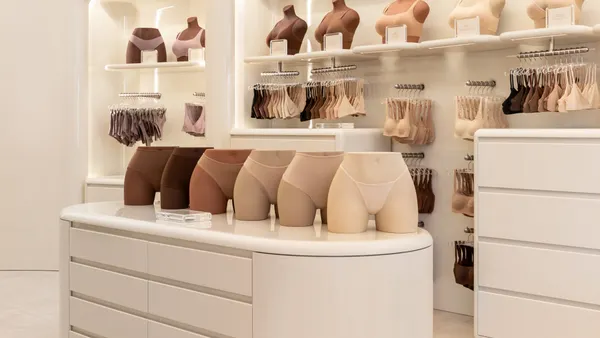Brief:
- Ownership of smart speakers like the Amazon Echo or Google Home is forecast to rise to nearly half (48%) of U.S. consumers after the holiday season from 32% in August, Adobe Analytics estimates in its latest study. The devices are expected to be popular gift items with 23% of smart speaker owners and 9% of non-owners planning to buy one for someone else.
- Smart speaker ownership is driving voice tech usage, Adobe found. Voice shopping is gradually gaining acceptance with 30% of smart speaker owners saying they use their device for shopping or ordering items. More popular shopping-related activities include general product search and research (47% of smart speaker owners), creating shopping lists (43%) and price comparisons (32%).
- The most popular activities for smart speaker owners include listening to music (70%), weather forecasts (64%) and setting reminders (46%), according to Adobe. These consumers are more likely than non-owners to feel comfortable talking to machines, with 76% of owners saying they've increased their use of voice assistants like Amazon Alexa or Google Assistant in the past year, compared to 38% of non-owners.
Insight:
Smart speaker ownership is a driving force in increasing voice usage for a variety of services as consumers grow more comfortable with the devices and as brands develop a wider range of voice-driven experiences that expand smart speakers' functionality. These voice-enabled devices are helping to drive the adoption of other voice technology, including assistants on smartphones, wearables and in cars, pointing to the potential booming market for voice technology after somewhat slow traction early on.
If ownership growth trends continue at the pace that Adobe suggests, more than half of U.S. consumers will own a smart speaker by early 2019. This highlights an opportunity for mobile marketers to create voice-powered apps that connect consumers to their brands and open a new channel for direct communication, marketing and retail at a lower friction point. While voice shopping is just gradually gaining acceptance, other features like seamless checkout, curbside pickup or speedy delivery must also be integrated with transactions made via voice to create a purchasing experience that's worthwhile to consumers and that will drive repeat interactions.
Adobe's study comes as Amazon's global share of smart speaker shipments fell to 41% in Q2 2018 from 76% a year earlier, while Google boosted its share to 28% from 16% during the same periods, according to researcher Strategy Analytics. The firm estimated that device makers shipped nearly 12 million smart speakers in Q2 2018, about 8 million more than a year ago. Samsung last month became the latest entrant into the smart speaker market after introducing its Galaxy Home smart speaker that uses the Bixby digital assistant to respond to commands.
With smart speakers a likely popular gift this holiday season, Adobe's study signals that voice technology could be here to stay.











